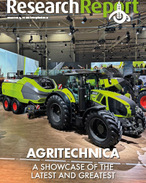This article is 2 years old. Images might not display.
Launched this week, the Common Approach to GHG Accounting for Australian Agriculture framework provides best practice guidance for sector-level accounting and can be used to steer improvements in data collection and reporting over time.
Development of the framework was facilitated by Agricultural Innovation Australia (AIA) and was produced by a research consortium led by the CSIRO.
AIA chief executive officer, Sam Brown said that prior to the commencement of this project, no national guidance for agricultural sector-level GHG accounting within Australia existed.
"Through this project, we now have an agreed standard protocol for GHG emissions accounting and a shared understanding of terminology. This provides agriculture with a strong foundation to enhance consistency, transparency and confidence in its GHG reporting and communications," Brown said.
The project brought together technical experts, Australia's rural Research and Development Corporations (RDCs), and several state government departments, to achieve consensus on general principles that could be broadly applied across agriculture, fisheries and forestry.
CSIRO Life Cycle Assessment expert, Dr Maartje Sevenster, led a project team consisting of GHG emissions researchers across various agricultural sectors.
"It was a highly collaborative project, involving participants across many organisations. Working together with the RDCs, we developed an approach for quantifying sector-level GHG emissions from agricultural industries, as well as a common language document to define many commonly used GHG emissions terms," Dr Sevenster said.
"Importantly, whilst the framework is based on shared key principles, it also allows for a modular approach that acknowledges potential differences between certain agricultural industries."
The framework describes how accounting can be undertaken to generate a transparent and trusted inventory of emissions based on a consistent set of principles, that aligns as much as possible with widely accepted, international frameworks and standards and general guidance on data collection and quality.
The Common Approach is recommended to be used to develop GHG accounts for Australian agricultural sectors at national and/or regional level, representing the commodity) produced. It can be used for:
• generating a GHG baseline, as a reference against which to track and report sector-wide GHG emission reductions over time
• generating GHG emissions accounts for sector-level annual reporting
• informing national and international stakeholders.
The Common Approach is not designed for generating farm-level GHG accounts, product-specific carbon footprints, sector comparisons or the estimation of carbon credits.
Key national and international overarching frameworks that the Common Approach draws on, where possible, are the Australian National Greenhouse Gas Inventory, ISO standards, guidance provided by FAO (Livestock Environmental Assessment and Performance Partnership) and the GHG Protocol.
A technical summery of the Common Approach can be viewed here: https://bit.ly/3ALKhN1























